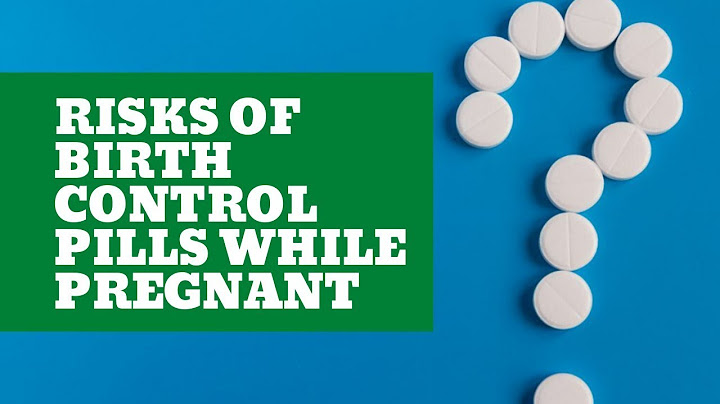Home » Blog » Tips for Getting Pregnant after Stopping Birth Control Show Tips for Getting Pregnant after Stopping Birth Control Posted on: 15-Oct-2020  You’ve got the job, the house, and the partner. Finally, the time feels right. You are ready to start trying to conceive. Now what? How long before trying to conceive should you stop using your birth control? Will using birth control in the past make it harder to get pregnant now? What can you do to get your body ready for pregnancy? The first step in trying to conceive is to stop using your current birth control. Each birth control method acts a little differently on the body to prevent pregnancy. You will need to know how and when to stop the specific type you use. Here is when you can expect fertility to return for these common types.
In addition to stopping your birth control, you will want to take steps to prepare your body for pregnancy. Start taking a prenatal vitamin three months before trying to conceive. Vitamins, along with a healthy diet, are crucial to help ensure that your body is ready tosupport a healthy pregnancy. Lifestyle choices like exercising, reducing stress, quitting smoking, and cutting back on alcohol intake are all very important as well. These will help increase fertility as well as give you a healthy start to your pregnancy. The third step as you try to conceive, is learning more about your body so that you can recognize when you are fertile. Timing sex during your fertile window (the five days before ovulation and the day you ovulate) increases your chances of becoming pregnant quickly. Tracking your menstrual cycle with apps that note changes in your cervical mucus and basal temperatures can help you determine your fertile window. Ovulation tests are another option to help recognize when you are most fertile. The good news is that long-term fertility is not negatively affected by birth control use. If you have decided the time is right to get pregnant, most forms of birth control allow you to become fertile again within a few days to a few months. It is then safe to get pregnant right away. Most women will become pregnant within a year of stopping birth control. However,the time it takes to conceive will depend on your individual body so if at anytime you have questions or concernsabout your fertility check with your doctor. Dr. Anil Pinto is board certified in Obstetrics and Gynecology and the subspecialty of Reproductive Endocrinology and Infertility. Dr. Pinto has a special interest in the treatment of Polycystic Ovarian Syndrome (PCOS), recurrent pregnancy loss, and advanced reproductive technologies, such as IVF. His peers recently selected him as one of the Best Doctors in Dallas in the field of reproductive endocrinology and infertility. Dr. Pinto is married to Karen Pinto, M.D., a pathologist at Baylor University Medical Center. They live in Dallas with their son and daughter. Dr. Pinto enjoys fly fishing, classical music, and playing the flute. We include products we think are useful for our readers. If you buy through links on this page, we may earn a small commission. Here’s our process. Is pregnancy possible? Birth control pills are among the most popular pregnancy prevention tools for women. They may also be used to help treat acne and uterine fibroids. The pill works by delivering hormones that prevent an egg from being fertilized. There are different types of pills with varying amounts of hormones. For pregnancy prevention, the pill has a high efficacy rate when taken every day, and at the same time of day. The question is, what happens when you stop taking the pill? The answer ultimately depends on where you are in your menstrual cycle. If you stop taking the pill in the middle of your pack, you could get pregnant right away. On the other hand, if you finish out the month’s pills, pregnancy may be possible after your cycle gets back to normal. It’s important to know that simply taking the pill for a while doesn’t offer long-term effects after you quit — it must be taken every day to prevent pregnancy. Keep reading to learn how the type of birth control pill can affect your chance of pregnancy, what you can do to prevent pregnancy between birth control methods, and what to do if you’re trying to conceive. Combination pills are the most common forms of oral contraceptives. These contain both estrogen and progestin. When taken daily, these pills protect against pregnancy by preventing the release of an egg during ovulation. They also create mucus barriers to help prevent sperm from reaching an egg. The rate of pregnancy after stopping these pills greatly depends on the type of combination pill you’re taking. If you’re taking the conventional type, which has three weeks of active pills, it’s possible to get pregnant the next month after menstruation. It’s also possible to get pregnant if you miss a dose in the middle of your pack. Some combination pills, like Seasonale, come in extended cycle versions. This means you take 84 active pills in a row and only have a period every three months. It may take longer for your cycles to normalize after taking extended-cycle pills, but it’s still possible to get pregnant in as little as one month. Like the name suggests, progestin-only pills only contain progestin, so you don’t have an “inactive” week of pills. These “minipills” also alter ovulation, as well as the linings of the cervix and uterus. These pills don’t contain estrogen, so their efficacy is slightly lower. It’s estimated that about 13 out of every 100 women taking the minipill will get pregnant each year. This also means that pregnancy is more likely immediately after you stop progestin-only pills. If you’re actively trying to conceive, it’s still a good idea to wean off the pill first, so talk with your doctor. Although your cycle might take time to normalize, it’s still possible to get pregnant during the first month after you stop the pill. If you’re not looking to get pregnant right now, you’ll want to consider another birth control method to use after you stop the pill. Numerous over-the-counter barrier methods, when used correctly, can prevent pregnancy. These include: Spermicide: This is a gel or cream that contains nonoxylnon-9, a chemical that kills sperm. Although spermicide may be used alone, it’s more effective when used with other barrier methods. Condoms: Available in both male and female versions, condoms prevent sperm from entering the uterus. These are made even more effective when used with spermicide. Never use both male and female condoms at once, as this can increase the risk of tearing. Diaphragms: Made for women only, a diaphragm is placed in the vagina and acts as a barrier along the cervix. Diaphragms must be used with spermicide to work effectively. Unlike a condom, which is removed immediately after sex, a diaphragm must stay in place for at least six hours after intercourse. After your six hours are up, you must remove it within the next 18 hours. Sponges: These foam structures are also placed in the vagina to cover the cervix. They already contain spermicide. Like diaphragms, sponges must stay in place for at least six hours after sex. You should remove the sponge within 30 hours after sex. Learn more: Which birth control is right for you? » The way you come off your birth control pill can also vary if you’re trying to conceive. Suddenly stopping the pill in the middle of the pack isn’t a good idea, because it can alter your cycle. Instead, it’s best to finish the pack and let your body run through a normal menstrual cycle first. One common misconception is that the pill adversely affects your fertility. The pill has no impact on your fertility — it just might take a couple of months for your cycle to get back to normal. You may or may not get pregnant during the first cycle after you stop the pill. In fact, women who were recently on the pill have the same chances of getting pregnant as women who haven’t taken oral contraceptives. Your doctor is your best source for advice for ensuring a healthy conception. They can advise on how to best come off the pill and talk to you about starting a prenatal vitamin before you try to conceive. They may also make recommendations about healthy eating, abstaining from alcohol, exercise, and more. Check out: A 30-day guide to prepare your body for pregnancy » What are the chances of getting pregnant after stopping birth control?"Patients may become pregnant anywhere from almost immediately, to two weeks or six months after stopping hormonal birth control methods," Dr. Purdie offers. "Generally speaking, healthy couples have an approximately 25% chance of becoming pregnant each cycle that they try," she says.
How long does it take to ovulate after stopping birth control pills?Generally speaking, ovulation will resume two to four weeks after you stop the pill. It may take a bit longer for older women and women who have been on the pill for a long time, according to Columbia Health. In some cases, re-establishing a regular ovulation cycle can take a few months.
Are you most fertile right after stopping the pill?Some healthcare providers even say you are most fertile just after you stop taking the pill.
Can you get pregnant the first week after stopping birth control?Although your cycle might take time to normalize, it's still possible to get pregnant during the first month after you stop the pill. If you're not looking to get pregnant right now, you'll want to consider another birth control method to use after you stop the pill.
|

Related Posts
Advertising
LATEST NEWS
Advertising
Populer
Advertising
About

Copyright © 2024 membukakan Inc.

















